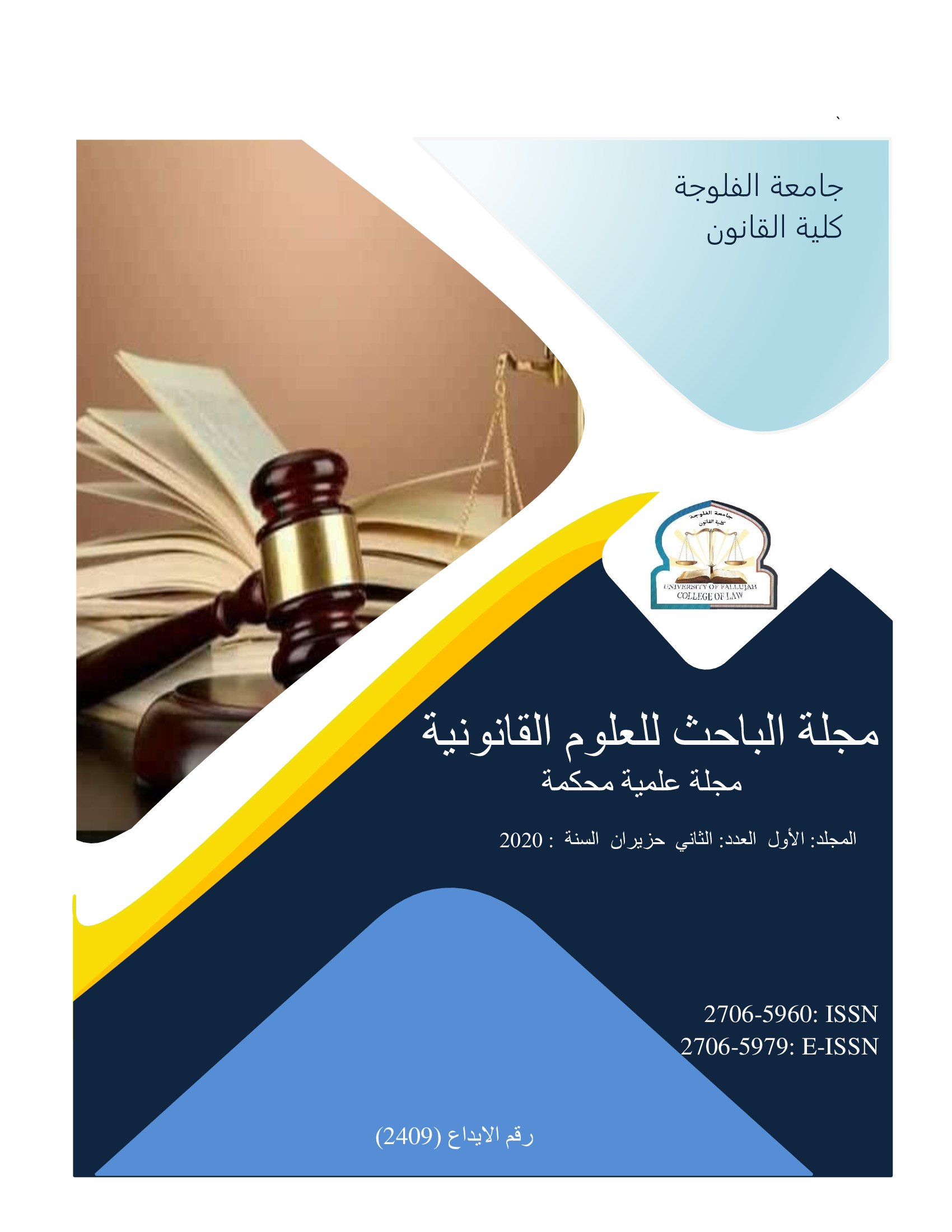Abstract
This research considers means of the criminal law in facing the gravity of a person did not commit the crime yet, but his personality reflects about the potential risk for committing a crime, we called this kind of risk \\"social risk\\" to distinguish it from the criminal risk that emerged after the committing the crime. This research shows that the means of law to face of this kind of risk could be either a criminal means by imposing a criminal sanction on those who have such this seriousness as a criminal like others who commit the crime, or by imposing preventive and non- criminal procedures on the basis that such person has not committed the crime yet. This study has examined these methods that deal with the social risk, and explained that the first means contradicts several constitutional principles in relation to human rights. So, the second means which call to impose preventive measures is the ideal way to deal with this issue to guarantee the rights and freedoms of individuals, and as well it demonstrates duty of the government towards the society.
Abstract
يتضمن البحث وسائل القانون الجنائي في مواجهة الخطورة التي تنم عن احتمال اقدام الشخص على ارتكاب الجريمة، وقد تضمن البحث ماهية الخطورة والتي اسميناها بالخطورة الاجتماعية تمييزا لها عن الخطورة الاجرامية التي تتحقق بعد ارتكاب الجريمة، وقد بين البحث وسائل القانون في مواجهة هذا النوع من الخطورة، ورأينا ان هذه الوسائل اما ان تكون جزائية من خلال فرض جزاء جنائي على من تحققت لدية هذه الخطورة بعدّه مجرما شأنه شأن المجرم الذي يرتكب الجريمة، وما ان تكون هذه الوسائل وقائية غير جنائية على أساس ان الشخص الذي تحققت لدية الخطورة لم يرتكب الجريمة بعد ، وقد بينا مدى دستورية كل من الاسلوبين ورأينا ان الأسلوب الأول فيه اهدار لكثير من المبادئ الدستورية التي تحمي الحريات الفردية ، وان الأسلوب الأمثل لضمان حقوق وحريات الافراد وتحقيق الشرعية الدستورية هو الأسلوب الثاني المتمثل بفرض التدابير الوقائية ، كونها تدابير عامة تدخل ضمن السياسة التي تنتهجها الدولة وهي تقوم بواجبها تجاه افراد المجتمع .
